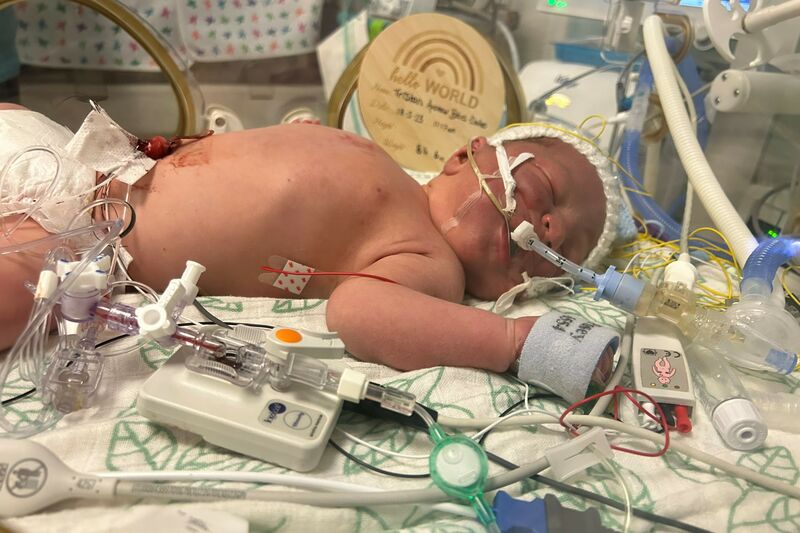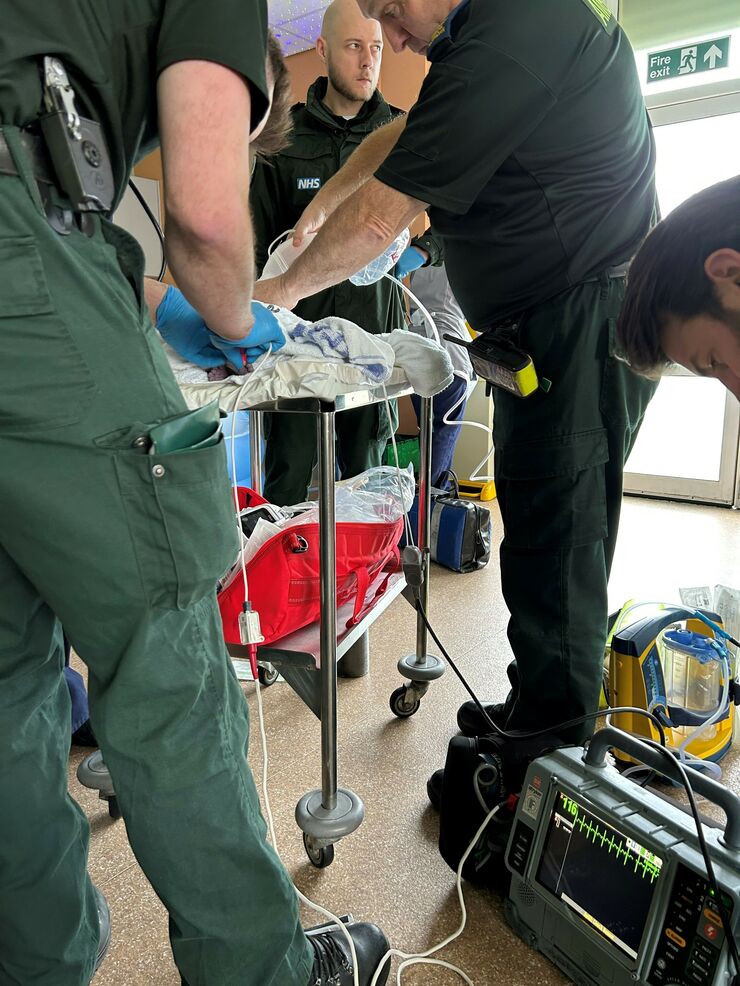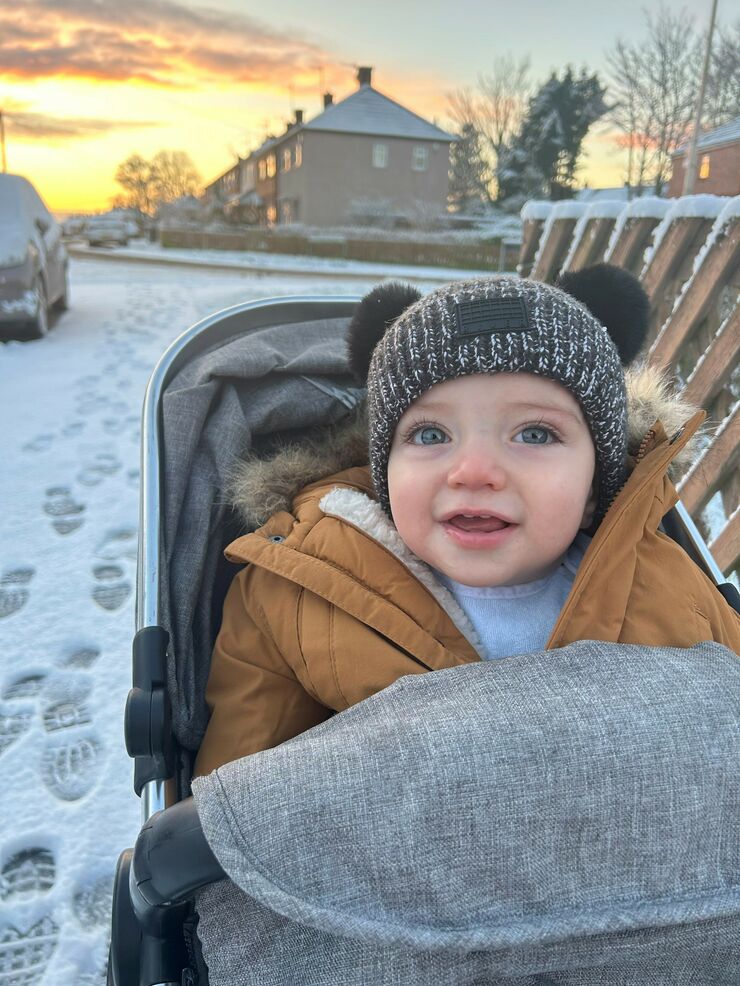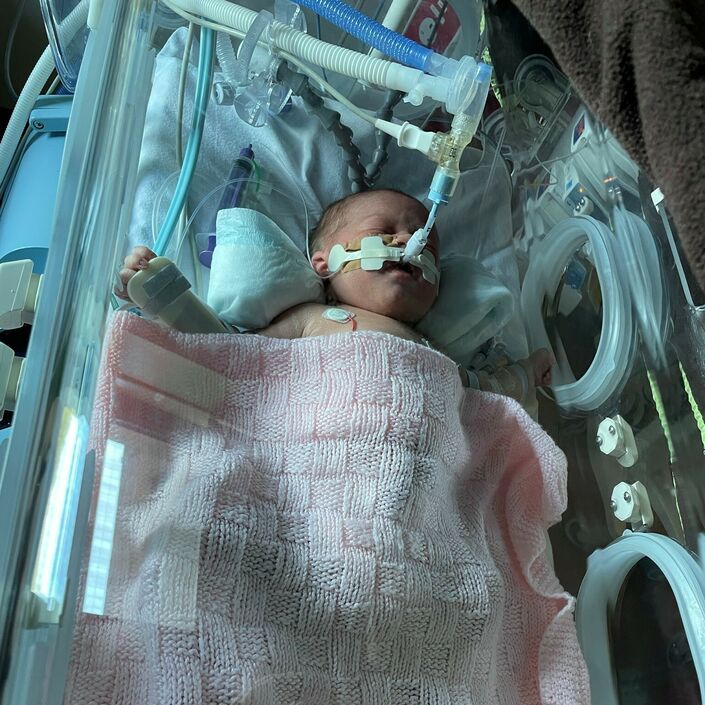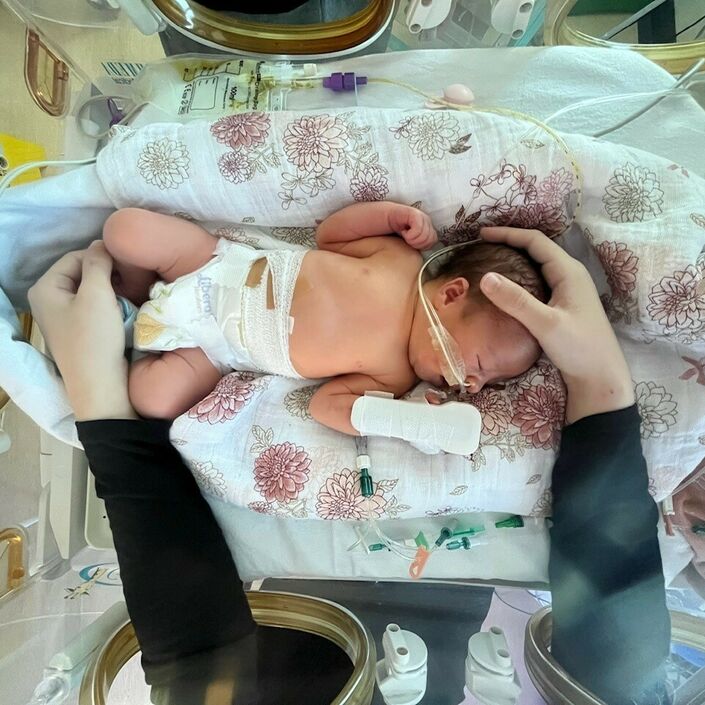Tristan is my second-born son, born at full term, at 39+2 weeks. This is his story – my little tornado, who made his speedy and dramatic entrance to the world on 18 March 2023 at a midwife-led freestanding birth unit, where there were no doctors.
Towards the end of labour, when his arrival was imminent, he was getting a little distressed and the attitude of the midwives changed once he started crowning. He was covered in poo - thick, black, sticky meconium.
Tristan came out at 11:17 am, followed by the remains of the amniotic fluid, which was brown and black sludge. No one could have predicted that this would happen as my waters before this were clear. When he was born, he didn’t make a sound. He was purple, blue, lifeless, floppy. Immediate newborn resuscitation commenced and 999 was called.
He had aspirated on the poo filling his lungs with the black tar meconium, blocking them so his brain was deprived of oxygen for an unknown length of time. Poo being where it shouldn’t be caused an enormous infection. Minutes old and the 999 call was harrowing, when the operator asked, “How old? Is he breathing?” I said, “No, no and no! Just send help now!”
The ambulance arrived, and then blue lights and sirens whisked him away. He was transferred to neonatal intensive care at Arrowe Park Hospital and diagnosed with meconium aspiration syndrome, grade two HIE and suspected sepsis.
Tristan took so long to stabilise that he went into complete respiratory failure within an hour of birth, so they placed him on a ventilator and then an oscillator due to ongoing hypoxia.
When tissues and organs go without oxygen for so long it can become fatal. The words, “He’s dying” were never said to me but I could see it in the doctor's eyes when they said, “He’s very, very sick.” He disappeared in an incubator to be placed on whole body cooling or therapeutic hypothermia.
As a mother, nothing could have prepared me for the first time I saw him - the wires, the tubes, the shaking of his body from the oscillator, the colour of him, the cold-to-touch feeling. A NICU nurse had to guide my hand as I was shaking that much.
